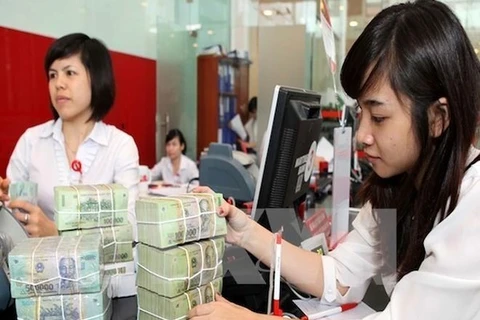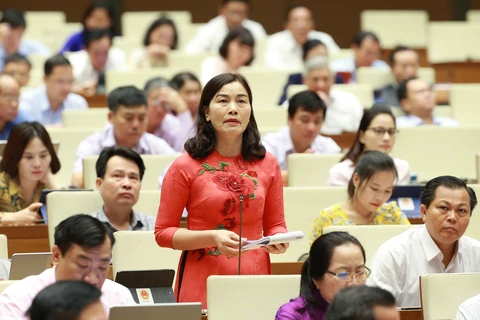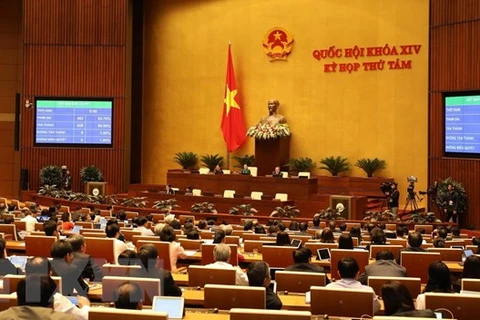 Deputy Prime Minister Vuong Dinh Hue speaks at a meeting on November 22 which reviews the implementation of a Party resolution on salary policy reform. (Photo: VNA)
Deputy Prime Minister Vuong Dinh Hue speaks at a meeting on November 22 which reviews the implementation of a Party resolution on salary policy reform. (Photo: VNA)Hanoi (VNA) - The restructuring and streamlining of administrative apparatus and preparing the budget for the reformed salary project are key to wage reform.
Deputy Prime Minister Vuong Dinh Hue, head of the central steering committee for reform of wage and social insurance policies, made the statement at a meeting held on November 22 to review the implementation of a Party resolution on salary policy reform.
Under the wage plans, which take effect in 2021, the new public sector wage system will be linked to employees’ positions and grades. Employees of State-owned enterprises will enjoy pay parity with those from non-State firms.
According to Hue, the renovation of administrative apparatus and payroll streamlining will reduce its reliance on State budget and improve the effectiveness of public institutions.
The Government has decided to spend 40 percent of State budget surplus and 70 percent of budget surplus of localities for 2018-2020 period for salary reform project.
Hue said preparations for the implementation of the project was underway.
From 2021, retirement ages will rise by three months per year for men, and four months for women.
Other contents relating to wage issues including minimum wage and how to calculate salaries will also be revised in accordance with the amended labour code.
Prime Minister Nguyen Xuan Phuc has issued a directive on the implementation of special wage mechanism applicable to certain units in the State apparatus.
The PM allowed these units to carry out the mechanism until the end of 2020 and then exercise payment in accordance with the new wage policy from 2021, ensuring transparency of public administrative services and facilitate such activities as specialised inspections, he said
Hue said agencies and sectors would make proposals on wage policy for their civil servants, officials and armed forces while the Ministry of Home Affairs would be in charge of submitting reports on the implementation.
Vietnam has gone through several wage reforms in 1960, 1985, 1993 and some further adjustments in 2003.
In October 2017, the Party Central Committee issued Resolution No 18 and 19 on continued reform to improve the effectiveness of public institutions. The Party Central Committee set the goals of reducing 10 percent of the permanent posts by 2021 compared with 2015’s figures./.
VNA






















